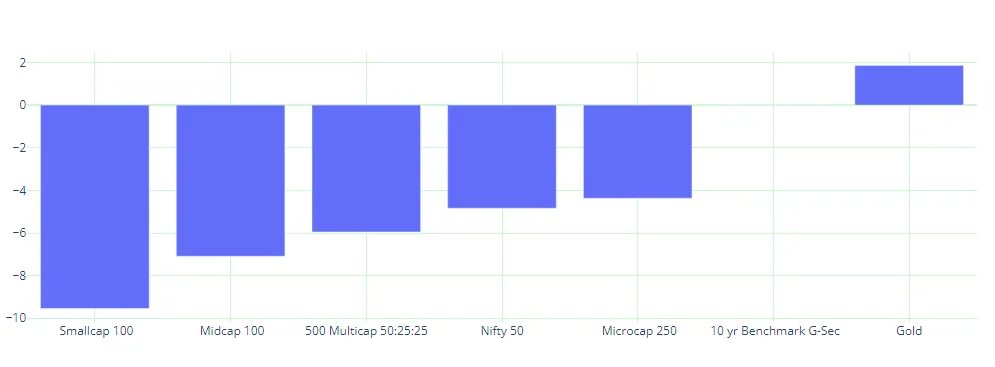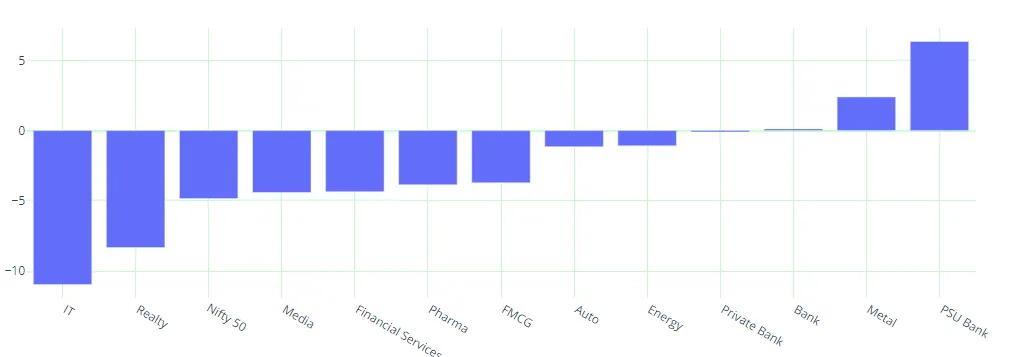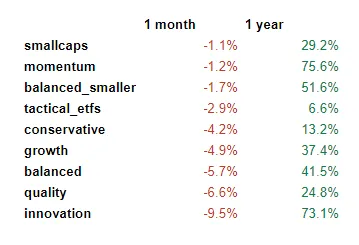- Tools

Get your
financial
Advise - Services

Get your
financial
Advise - About
-
News & Blogs
-
Start Investing
Find the
Perfect Portfolio
- Sign In








 Among sectors, PSU Banks, Metals and Private Banks were the best performing sectors. On the other hand, IT was the worst sector, falling due to global cues as most of the global tech players are falling.
Among sectors, PSU Banks, Metals and Private Banks were the best performing sectors. On the other hand, IT was the worst sector, falling due to global cues as most of the global tech players are falling.




